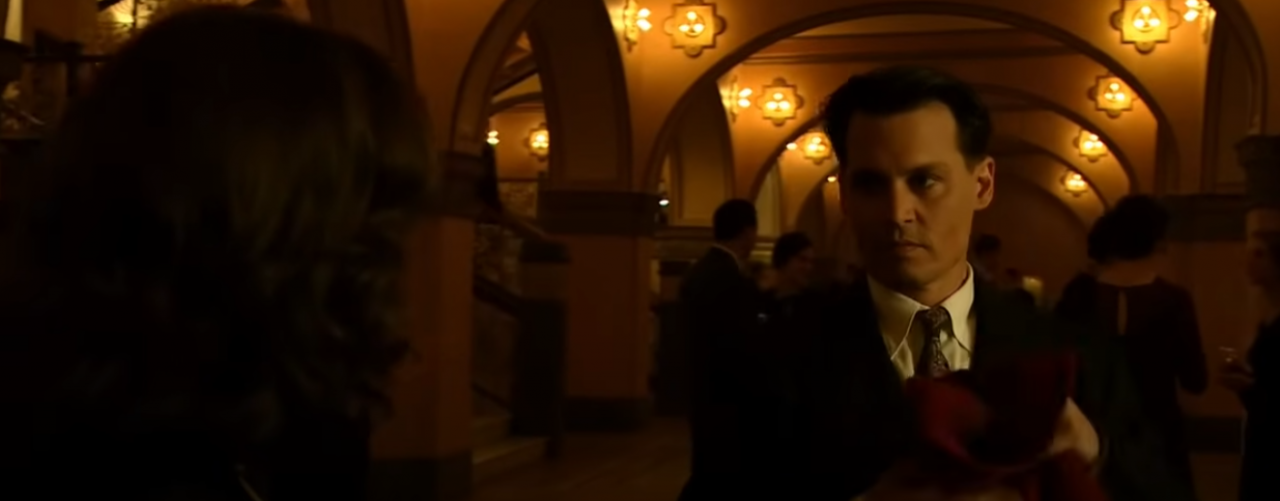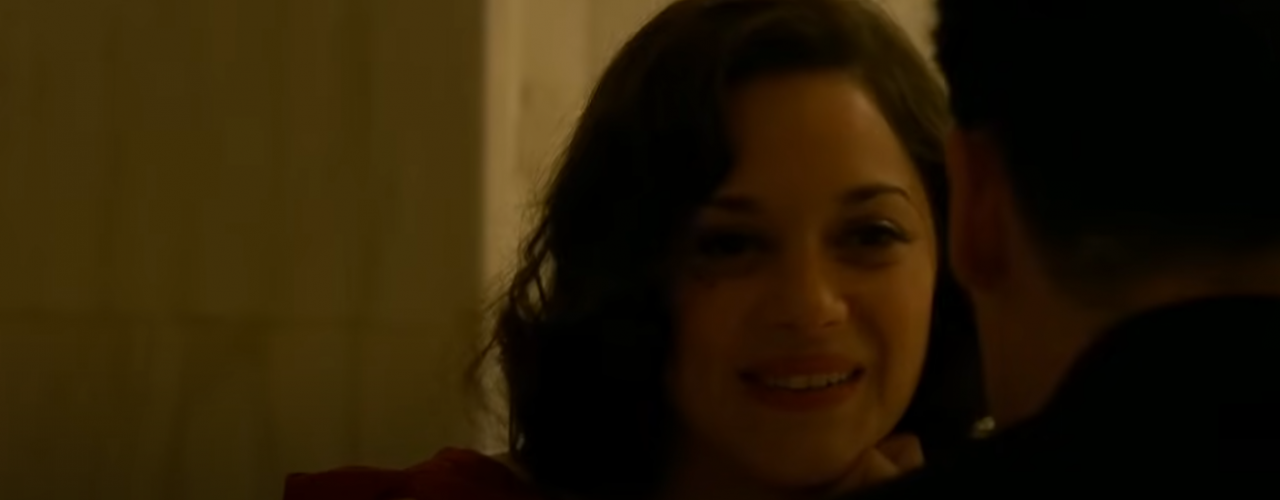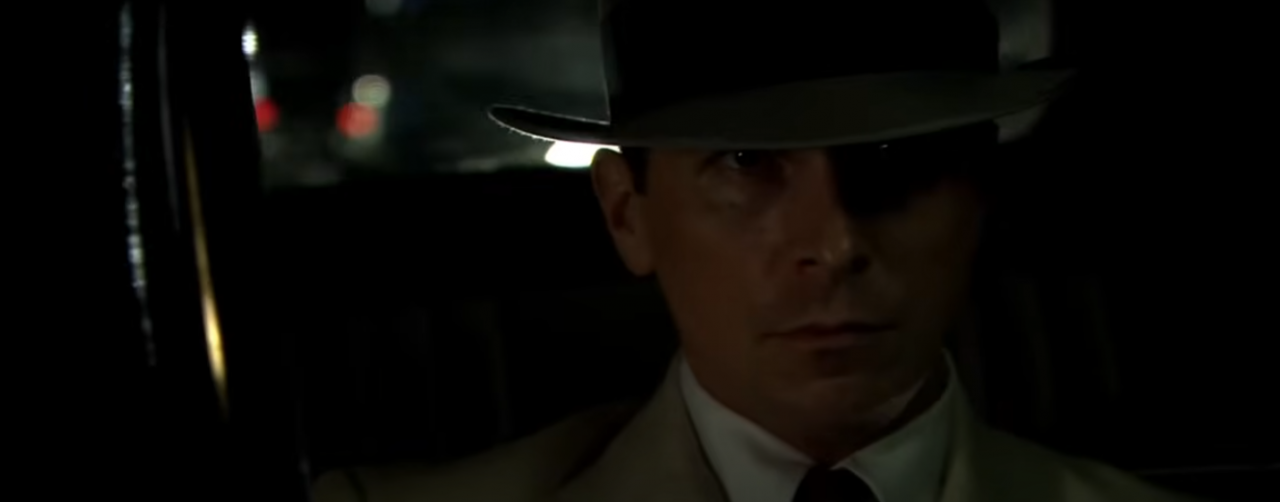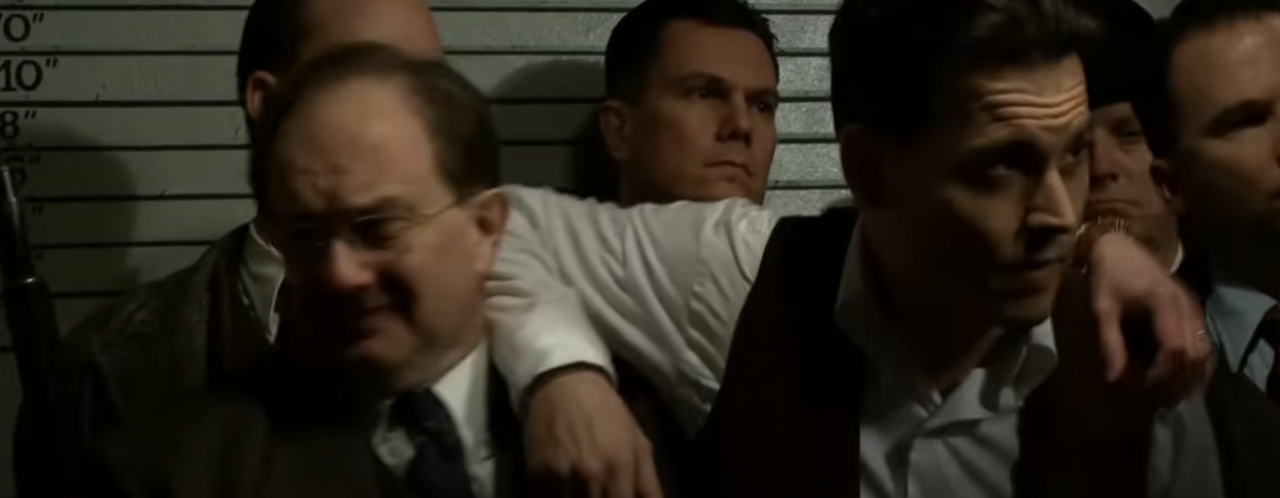Recap

Public Enemies (2009), directed by Michael Mann, is a biographical crime drama that chronicles the final years of notorious bank robber John Dillinger. Starring Johnny Depp as Dillinger, Christian Bale as FBI agent Melvin Purvis, and Marion Cotillard as Billie Frechette, the film delves into the cat-and-mouse game between Dillinger and the FBI during the Great Depression.

The film opens in 1933 with John Dillinger orchestrating a daring prison break from Indiana State Penitentiary to free his crew, though his mentor Walter Dietrich is killed during the escape. Dillinger and his gang, including “Red” Hamilton, Homer Van Meter, and Harry “Pete” Pierpont, resume their bank robbing spree across the Midwest. Dillinger’s audacious crimes and charismatic persona turn him into a folk hero for some, much to the chagrin of J. Edgar Hoover (Billy Crudup), the ambitious director of the Bureau of Investigation (BOI), which would soon become the FBI.
Hoover assigns agent Melvin Purvis to lead the manhunt for Dillinger, declaring him “Public Enemy No. 1.” Purvis, a dedicated and by-the-book lawman, employs modern crime-fighting techniques, including fingerprinting and wiretapping, to track Dillinger.
Amidst his criminal activities, Dillinger meets Billie Frechette, a coat check girl, and they begin a passionate romance. Billie is aware of his identity but is drawn to his charm and lifestyle.

Purvis’s initial attempts to capture Dillinger are fraught with failure and bloodshed. A botched ambush at a hotel results in the death of an FBI agent and the escape of gang members like Baby Face Nelson. Hoover, frustrated by the lack of progress and negative publicity, pressures Purvis to use any means necessary, leading to more aggressive and sometimes brutal tactics by the agents.
Dillinger is eventually captured in Tucson, Arizona, after a fire at the Hotel Congress. He is extradited to the Lake County Jail in Crown Point, Indiana, which is touted as “escape-proof.” However, Dillinger stages another infamous escape using a cleverly carved wooden gun.
Following his escape, Dillinger finds that the criminal underworld, particularly Frank Nitti and the Chicago Outfit, is distancing itself from him. His high-profile crimes are drawing too much federal attention, which is bad for their more organized and less conspicuous rackets.
Dillinger, now with a diminished crew including Red Hamilton and Homer Van Meter, attempts a bank robbery in Sioux Falls, which goes awry. Dillinger and Hamilton are wounded, and they are forced to leave another associate, Tommy Carroll, behind. They retreat to the Little Bohemia Lodge in Manitowish Waters, Wisconsin.
Purvis and his agents, having tortured Carroll for information, surround the Little Bohemia Lodge. A chaotic and bloody shootout ensues. While Dillinger and Hamilton manage to escape, several gang members and an FBI agent are killed. Baby Face Nelson also escapes after killing another agent. Red Hamilton, severely wounded, dies shortly after, advising Dillinger to let Billie go for her own safety.
Billie Frechette is eventually arrested and brutally interrogated by the FBI in an attempt to locate Dillinger. She refuses to betray him.

Ending Explained
The net closes in on Dillinger in Chicago. Anna Sage (Branka Katić), a brothel madam and acquaintance of Dillinger’s, faces deportation. To secure her stay in the U.S., she makes a deal with Purvis to betray Dillinger. She informs Purvis that she, Dillinger, and Polly Hamilton (another of Dillinger’s companions) will be going to see the gangster film Manhattan Melodrama at the Biograph Theater on July 22, 1934. Sage is instructed to wear a red dress so agents can identify her and Dillinger.
As Dillinger, Sage, and Hamilton exit the theater, Purvis and his men move in. Dillinger spots the agents and reaches for his gun but is shot multiple times by several agents, including Charles Winstead (Stephen Lang). He falls to the ground on the sidewalk. Agent Winstead approaches the dying Dillinger. Dillinger whispers something to him.
Later, Winstead visits Billie Frechette in prison. He tells her that Dillinger’s last words were, “Tell Billie for me, ‘Bye, bye, Blackbird.'” “Bye, Bye, Blackbird” was a song significant to Dillinger and Billie. Billie is overcome with emotion.
The film’s closing titles state that Melvin Purvis left the FBI a year later and died by suicide in 1960. Billie Frechette was released from prison after two years and lived out the rest of her life quietly.
The ending underscores the tragic nature of Dillinger’s life and his doomed romance with Billie. Despite his notoriety and criminal lifestyle, his final thoughts are of her. It also highlights the toll the manhunt took on Purvis, who, despite his success in bringing down Dillinger, ultimately met a tragic end himself.
Main Characters

- John Dillinger (Johnny Depp): A charismatic bank robber whose daring exploits and defiance of authority make him a public figure.
- Melvin Purvis (Christian Bale): An ambitious FBI agent determined to capture Dillinger, representing the federal government’s push for law and order.
- Billie Frechette (Marion Cotillard): Dillinger’s love interest, whose relationship with him adds emotional depth to the narrative.
- J. Edgar Hoover (Billy Crudup): The FBI director focused on expanding the bureau’s power and using Dillinger’s capture as a means to that end.
Real-Life Accuracy
While Public Enemies strives for historical authenticity, certain liberties are taken for dramatic effect. The film accurately depicts events like the Little Bohemia Lodge shootout and Dillinger’s death outside the Biograph Theater. However, some timelines are compressed, and characters are amalgamated or fictionalized. For instance, the portrayal of Dillinger’s involvement in a 1933 prison break is dramatized; in reality, he was not present during the escape but had smuggled weapons into the prison.
Director Michael Mann filmed scenes at actual historical locations, such as the Little Bohemia Lodge and Crown Point Jail, to enhance authenticity. Author Bryan Burrough, whose book inspired the film, acknowledged that while not entirely accurate, the film is “by far the closest thing to fact Hollywood has attempted” regarding Dillinger’s story.
Reviews
IMDb: “Public Enemies” has a user rating of 6.9/10 based on over 328,000 ratings. User reviews often praise Johnny Depp’s performance as Dillinger, Christian Bale’s portrayal of Purvis, the period detail, and Michael Mann’s stylish direction and action sequences. Criticisms sometimes point to a perceived emotional coldness, a complex plot that can be hard to follow for some, and a script that some felt didn’t fully develop all its characters or themes. Some users found the digital cinematography off-putting, while others appreciated its immediacy.
Rotten Tomatoes: The film holds an approval rating of 68% based on 279 critic reviews, with an average rating of 6.4/10. The critical consensus reads: “Michael Mann’s latest is a competent and technically impressive gangster flick with charismatic lead performances, but some may find the film lacks truly compelling drama.” The audience score is lower at 59% based on over 250,000 ratings. Critics generally lauded the performances and Mann’s signature visual style but were divided on the film’s emotional impact and historical liberties. Roger Ebert gave it a positive review, praising it as “a grave and beautiful work of art” but also noted a lack of traditional closure
Critics’ Opinions:
- Roger Ebert awarded the film 3.5 out of 4 stars, praising Depp’s performance as “something else” and noting the film’s meticulous detail.
- Manohla Dargis of The New York Times described it as “a grave and beautiful work of art,” highlighting its high-definition cinematography.
- Conversely, some critics felt the film lacked emotional depth. Liam Lacey of The Globe and Mail commented on the absence of the economic context that made Dillinger a folk hero.
Audience Reactions:
- Some viewers appreciated the film’s style and performances but criticized its pacing and character development. One IMDb user noted that while the film is “well made,” it “ends up coming out dry.” IMDb
Conclusion
“Public Enemies” offers a visually striking and often intense portrayal of John Dillinger’s last stand against the burgeoning FBI. While it takes some artistic license with historical facts, it succeeds in creating a compelling crime drama driven by strong performances, particularly from Johnny Depp and Marion Cotillard. It explores the end of an era for outlaws like Dillinger as law enforcement became more organized and technologically advanced.




